FACILITIES AVAILABLE IN THE DEPARTMENT
Electrical Machines Laboratory
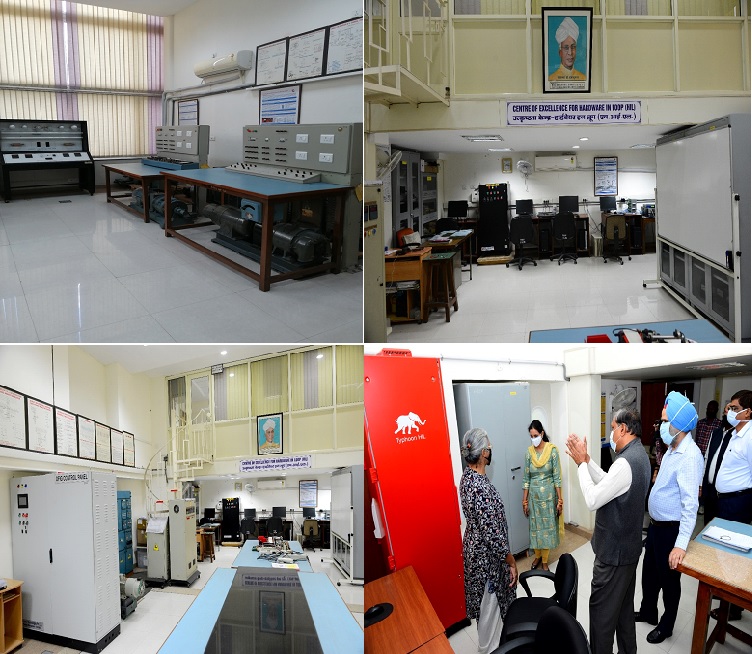
Centre of Excellence for Hardware in Loop (HIL) has been established in collaboration with Typhoon HIL. Microgrid Testbed ,Grid Simulator , Phasor Measurement Unit , Doubly Fed Induction Generator (DFIG) are also there in the laboratory
In addition to various conventional ac and dc machines, one set of universal machine is also available in the laboratory. A part of the Electrical Machines Laboratory is specifically developed for Contactor Control of Electric drives wherein various trainer boards have been developed for performing different exercises in this area.
Virtual Instrumentation Laboratory
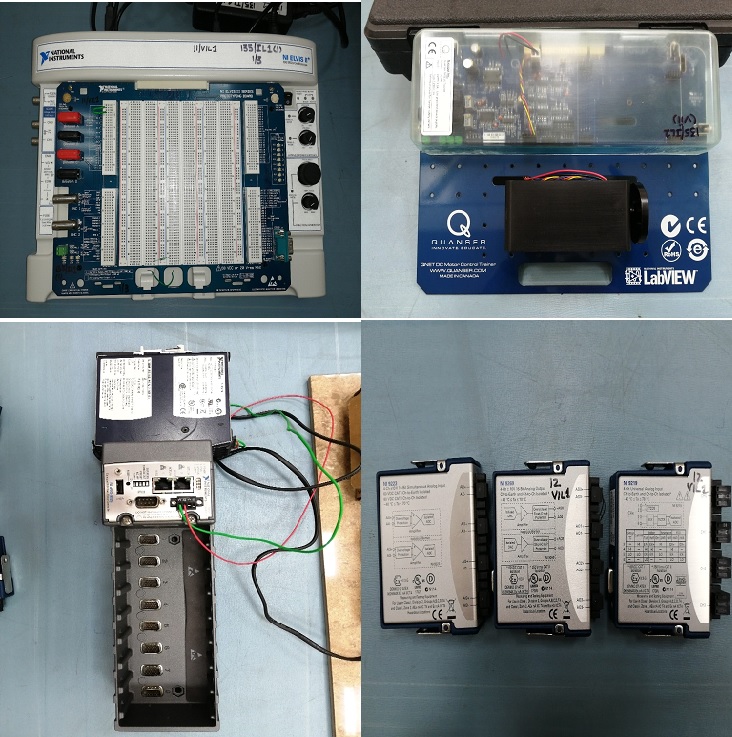
This laboratory have various equipment�s such as NI ELVIS II with Circuit design bundle, Mechatronic Sensor board, Quanser Qnet DC motor control, Quanser Qnet rotory inverted pendulum, Quanser Qnet HVAC trainer, free scale NI Elvis microcontroller prototype board, Vernier Gran Engineering Sensor kit, Vernier Bio- instrumentation sensor, Emona ETT-211 Fotex fiber optics communication Trainer etc.
Power Electronics Laboratory
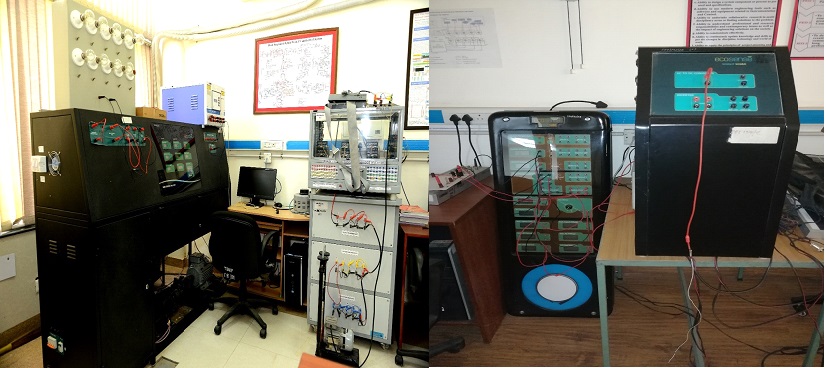
In addition to number of training boards in Power Electronics, the laboratory is equipped with trainers on solid state motor control, three-phase triggering system, microprocessor based control systems, stepper motor control, thyristor based universal control kit, etc.
Power Electronics Laboratory also has a microprocessor based energy manager, large number of measuring instruments, Solar PV Training and Research Kit and Cascade Multilevel inverter (H- Bridges) which can be interfaced with MATLAB using Dspace unit and Cyclone III FPGA development kit, Energy Lab setup with Wind, Solar & Fuel Cell integration.
Embedded Systems Laboratory
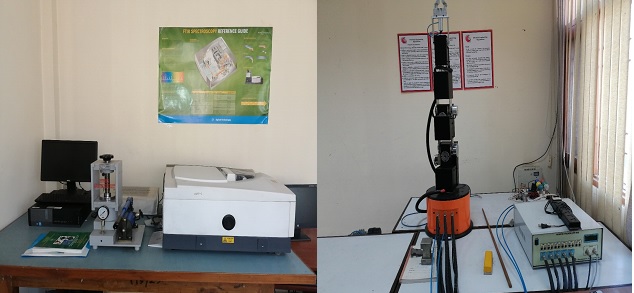
The Laboratory has a set of training boards on microcontrollers, Microprocessors, Robotic Arm, FTIR Spectometer
Process Control Laboratory
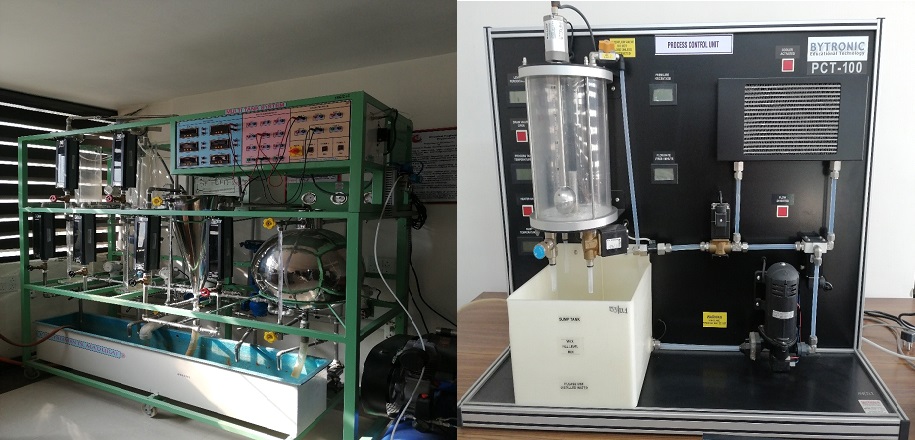
This laboratory has facilities for experiments on Microprocessor and PC based process control including flow, level, temperature etc. along with the supporting software. The Laboratory has a set of training boards on Transducers, Process Control, Analog Motor Control, Digital Motor Control and PC based data acquisition system in addition to various sensors, transducers and measuring instruments.
PLC laboratory
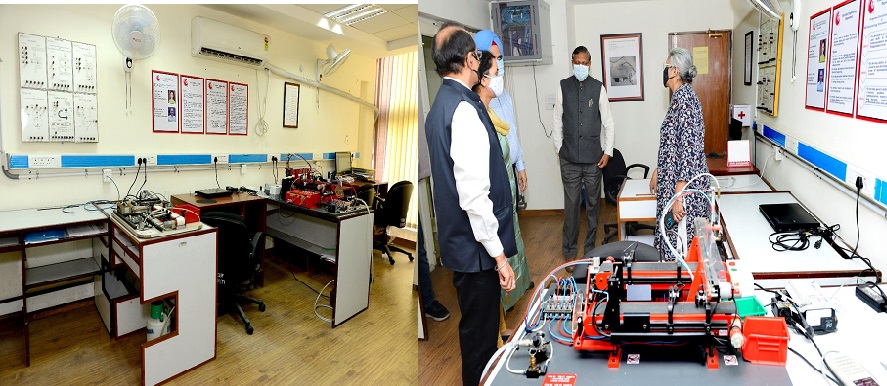
The PLC laboratory is equipped with PLC based control system and Advanced PLC Trainer, other interfacing devices to train students how to program and upload ladder logic code. The lab is based primarily on the Allen Bradley family of Programmable Logic Controllers, which are widely used in factories and other settings.
Electric Vehicle Laboratory

The Electric Vehicle (EV) Laboratory in the Electrical Engineering Department is a dedicated facility aimed at providing hands-on training and practical insights into modern electric mobility systems. The lab is equipped with experimental setups for both two-wheeler and four-wheeler electric vehicle applications. Key experiments conducted include the study and analysis of speed control in a Modular Drive BLDC motor used in four-wheeler setups, as well as the testing and speed control of BLDC hub motors in electric two-wheelers. Additionally, students perform load tests on BLDC hub motors to evaluate performance under varying conditions. The lab also facilitates speed and torque analysis of Permanent Magnet Synchronous Motor (PMSM) drives, enabling a deeper understanding of their operational characteristics. Furthermore, the impact of regenerative braking in electric vehicles using PMSM drive setups is examined to explore energy recovery mechanisms. This lab serves as a vital platform for students to gain practical knowledge of EV technologies and contributes to skill development aligned with current industry demands.
Computer Applications Laboratory
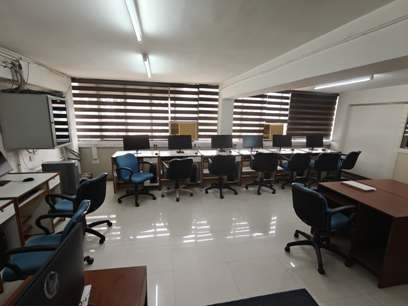
The computer applications laboratory has various software packages such as MATLAB, LabVIEW, PSCAD, LIVEWIRE, LADSIM etc. which are used for simulation, design and analysis of various electrical and electronic systems and their control.
